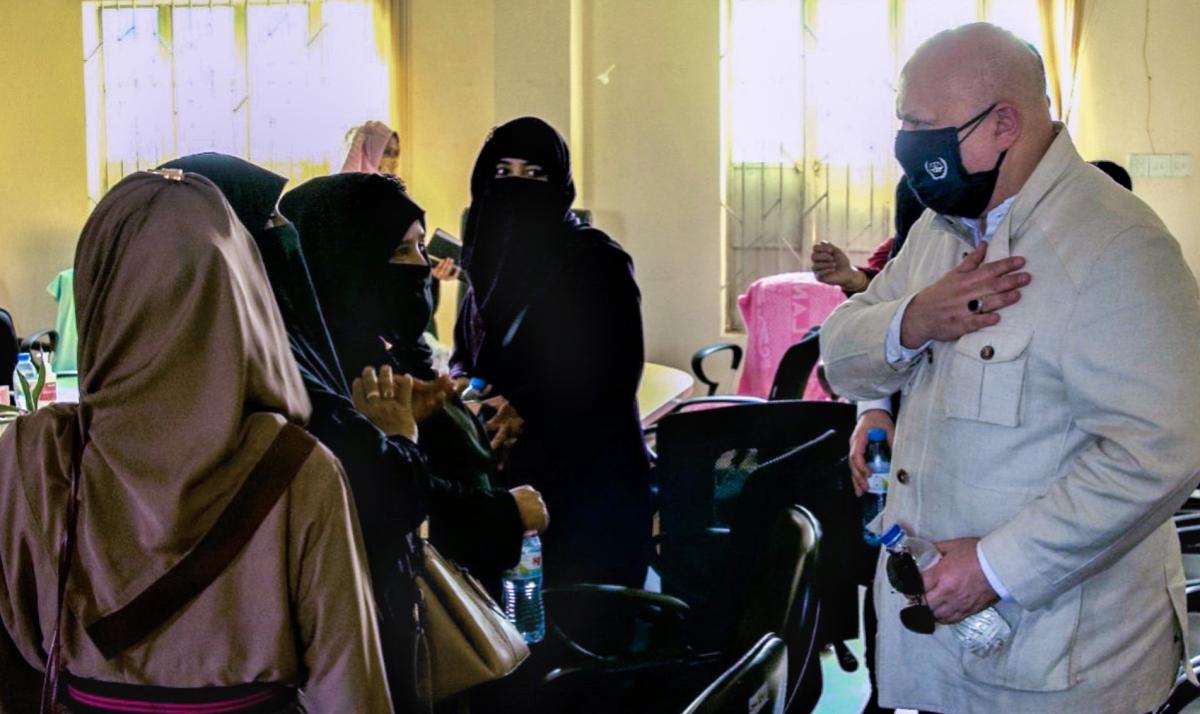ICC Prosecutor Karim A.A. Khan QC announces new initiative to strengthen engagement with civil society

I am pleased to announce today a new initiative from my Office to further strengthen the role of civil society in our work.
In June last year when I took up the role of Prosecutor, I emphasised that to realise the promise of the Rome Statute, we had to fully harness the capacity and commitment of all actors. Almost a year on, I am more convinced than ever that if we are to deliver on the legitimate demands for justice of survivors, we must do so by deepening our partnerships with impacted communities and civil society. In my meetings with groups across the situations addressed by my Office, whether in Bogota, Caracas, Cox’s Bazaar or Kyiv, my message has been the same: we must work together to ensure that our collective efforts serve the interests of justice and protect the rights and wellbeing of survivors.
The message I have received from civil society actors is that they wish to engage further with us and to contribute constructively in our common effort to assist communities impacted by the most serious of crimes.
Reflecting this, I am introducing a series of steps aimed at strengthening our ability to benefit from the expertise and energy of civil society, both with respect to the implementation of effective investigations and prosecutions and in the development of the broader policy framework governing the exercise of our independent mandate. These measures will include:
-
The hosting of two thematic roundtables with non-governmental organisations each year, in addition to the existing annual ICC-NGO roundtable.
These sessions will be used to look together, in-depth, at specific policy areas in which the Office believes the input and perspective of NGOs would be of particular benefit. It is my proposal that the first thematic roundtable address the topic of crimes against children, and will be held in October 2022 in The Hague.
-
The development and publication of guidance materials for non-governmental organisations to support them in engaging with witnesses and survivors in a manner that preserves the integrity of potential testimony that could be relied on in criminal proceedings and reduces the risk of re-traumatisation.
-
Drawing on the establishment of an enhanced field-presence of the Office, introduction of a new programme for engagement with national non-governmental and local community based organisations in the work of the Office.
-
Further empowerment of teams from my Office addressing individual situations to engage effectively with non-governmental organisations.
I wish to underline that I am open to further discussions as to other ways in which cooperation between my Office and civil society actors can be further strengthened. This initiative represents an attempt on my part, based on my interactions with a wide range of non-governmental organisations and survivor groups to date, to begin to accelerate our work together. But I am sure there will be more we can do to further deepen our collaboration.
In recognition of this, I look forward to outlining this initiative in further detail at the upcoming annual ICC-NGO roundtable to be held in June 2022.
Immediately prior to joining the International Criminal Court, I spent three years in Iraq working hand-in-hand, day-by-day with those directly affected by the most unimaginable atrocites. Speaking with impacted communities, survivors and religious authorities, I was consistently humbled by their ability to not only find the courage to speak out but also to organise, to come together, and to develop networks through which they could amplify their voices. In doing so they were able to express their legitimate demands for justice and advocate for the rule of law beyond anything officials or institutions could achieve.
That experience has strongly impacted my view of how the Office of the Prosecutor can effectively deliver on its mandate. We must do so by bringing our work closer to communities, by making all actors feel as though they have a stake in the process of justice. As I have stated repeatedly, we cannot deliver accountability at arm’s length. Today, I hope that the announcement of these initial set of measures can mark the beginning of a new period of even stronger partnership with local communities and civil society actors.
The road to truly meeting the expectations of Rome will be difficult, but I am certain it can only be done together.
For further details on "preliminary examinations" and "situations and cases" before the Court, click here, and here.